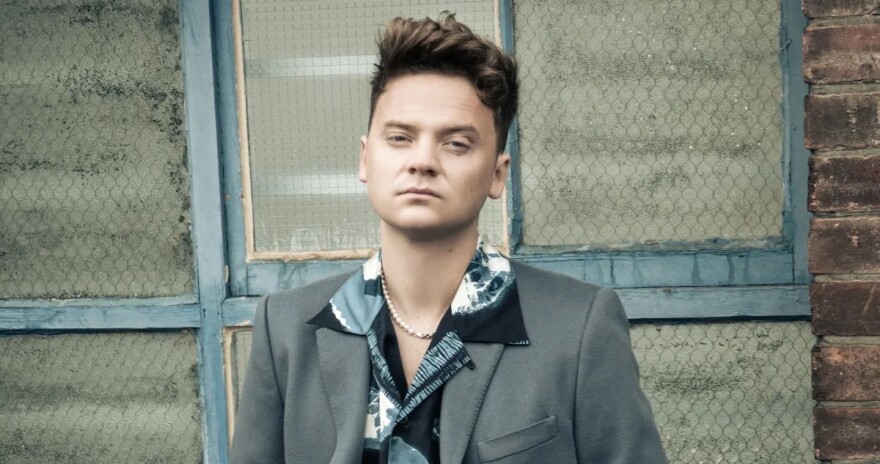Conor Maynard’s cover of Whitney Houston’s “I Wanna Dance With Somebody” doesn’t shimmer. It aches. It’s reimagined as something quietly devastating—a breakup ballad disguised in a disco shell. “I was dealing with a really difficult breakup,” Maynard says. “I wanted to go out and dance, but I literally couldn’t. I was missing the person too much.”
That emotional contradiction—wanting joy, stuck in sadness—is exactly what pushed Maynard to take the classic pop anthem and slow it into something sparse and melancholic. It wasn’t planned. It just happened. “I sat at the piano, figured out some chords, and it all came together,” he says. “It’s kind of random, really.”
This reimagined “Dance With Somebody” isn’t his first attempt at flipping familiar songs inside out. Maynard’s career, since his viral covers as a teenager, has been defined by his ability to remake a hit into something almost unrecognizable. “From the start, I’ve always wanted covers to sound like new songs,” he says. “Not a rip-off, not karaoke—something different.”
It’s a fine line to walk. Especially when you’re tackling a legacy. “It’s intimidating,” he admits. “You’re stepping into sacred territory. I wanted to make sure it was respectful.” The release date helped with that. After production delays, the track ended up dropping on February 11, 2022—the 10-year anniversary of Whitney Houston’s passing. “It felt like the stars aligned,” he says. “We got the blessing from her foundation. That meant a lot.”
If the cover feels intimate, it’s because it comes from a real place. That’s been the case with much of Maynard’s recent output, including “What I Put You Through,” another post-breakup track. “When it’s personal, it’s more rewarding,” he says. “But it’s also harder. You want every lyric to be perfect, because it matters.”
Even so, Maynard admits there’s a disconnect between creation and release. “The songs people are hearing now were written months ago,” he says. “I’m already in a different space. But someone else might be where I was then, so it still connects.”
He’s sitting on a vault of unreleased material—hundreds of demos, scattered across laptops and hard drives, destined to be buried in digital purgatory. “Some of them might be my best songs and I’ll never know,” he says. “But if I’m not 100% sold, I leave them behind.”
Since going independent in 2020, Maynard has been recalibrating his career. “I’m figuring it out as I go,” he says. “This year, it’s all about releasing as much music as possible and seeing what people connect with.”
That could mean singles, an EP, maybe a tour. “I don’t have a set plan,” he shrugs. “But there will be more music, and it’ll be honest.”
Honesty also comes with scars. Broadway ones, in Maynard’s case. He spent three months in New York performing in Kinky Boots, playing Charlie in a demanding eight-show-a-week schedule that forced him to live like a vocal monk. “All I did was drink ginger tea and be quiet,” he says. “I didn’t have a life outside the theater.”
Still, that experience left a mark on his voice—literally. “I realized during my run that if I added a slight growl to a note, people would go nuts,” he laughs. “It wasn’t technically harder, just sounded more emotional.” Now, that trick shows up everywhere in his recordings. “My friend Ant will say, ‘Needs more Charlie,’ and I know exactly what he means.”
That growl has become part of his arsenal, showing up on his cover of Lewis Capaldi’s “Someone You Loved,” one of his most successful tracks. “It hits harder,” he says. “It’s one of those stage tricks that just works.”
Maynard’s also been prolific in collaborations, even if the process is sometimes weirdly audition-like. “Some producers send the track to a bunch of singers, and whoever sounds best gets it,” he says. “It’s brutal. You do the work and maybe you never hear back.”
Better, he says, is when someone comes directly to him, like Pharrell did early in his career. “Pharrell saw me on YouTube, reached out, and flew me to Miami,” he recalls. “We made two songs in a week.” One of his album tracks was even written by Frank Ocean, with Ocean’s ghost vocals still haunting the background.
So, with all this in motion—covers, breakups, Broadway growls, and buried demos—what’s next?
“I just want to make stuff I believe in,” Maynard says. “If people come in under the tent I’ve built, great. If not, I’ll still be proud of what’s in there.”
Watch the interview above and then check out the videos below.


